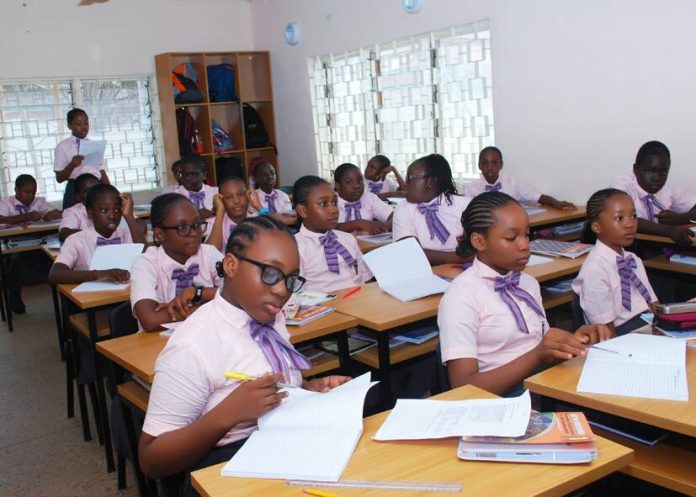The Federal Government of Nigeria says it is reforming the country’s education system, scrapping the Junior Secondary School (JSS) and Senior Secondary School (SSS) systems. In its stead, a compulsory 12-year uninterrupted basic education model will be introduced, followed by four years of tertiary education.
This new model replaces the existing 6-3-3-4 education system with a 12-4 structure.
Minister of Education, Dr. Tunji Alausa, revealed that his ministry is seeking the approval of the National Council on Education to adopt 16 years as the minimum entry age requirement for tertiary institutions.
The minister was speaking on Thursday in Abuja during the 2025 extraordinary National Council on Education meeting, comprising commissioners for education in the 36 states and the Federal Capital Territory (FCT), agencies and parastatals under the Ministry, and development partners.
Benefits of the New Education Model
According to Dr. Alausa, the new policy, if adopted, will align with global best practices, ensuring a standardized curriculum and uninterrupted learning up to age 16.
This reforms will:
- Reduce dropout rates by eliminating financial and systemic barriers
- Provide early exposure to vocational and entrepreneurial skills
- Prepare students for higher education and employment
- Align Nigeria’s education system with international standards
Dr. Alausa said, “Extending basic education to 12 years will ensure a standardized curriculum that is uniformly implemented across the nation. This will also facilitate early exposure to vocational and entrepreneurial skills, preparing students for both higher education and employment.
“Many developed nations have implemented similar systems where basic education spans 12 years, ensuring that students acquire foundational knowledge before specializing at tertiary levels.
“This reform also aligns Nigeria’s education system with international standards, fostering better educational outcomes and global competitiveness.”
He said it will also lead to economic and social impact, adding that “Educated youth contribute significantly to national development.
“When students receive an extended period of compulsory education, they are better equipped to join the workforce with relevant skills. This reform will also reduce child labor and other social vices resulting from premature school dropouts.”
Implementation Strategies
To successfully integrate secondary education into the new basic education, the government will focus on:
- Policy reforms
- Infrastructure expansion
- Teacher training and recruitment
- Funding and partnerships
- Curriculum enhancement
The Minister of State for Education, Prof. Suwaiba Said Ahmad, also said technical and vocational education training (TVET) is vital in empowering young people to be self-sufficient and contribute meaningfully to the economy.
It is noteworthy that this is not yet an official policy change, but a proposal to the National Education Council, for consideration and adoption.
Like 👍, Comment, share this article, and Follow us on our social media handles.







